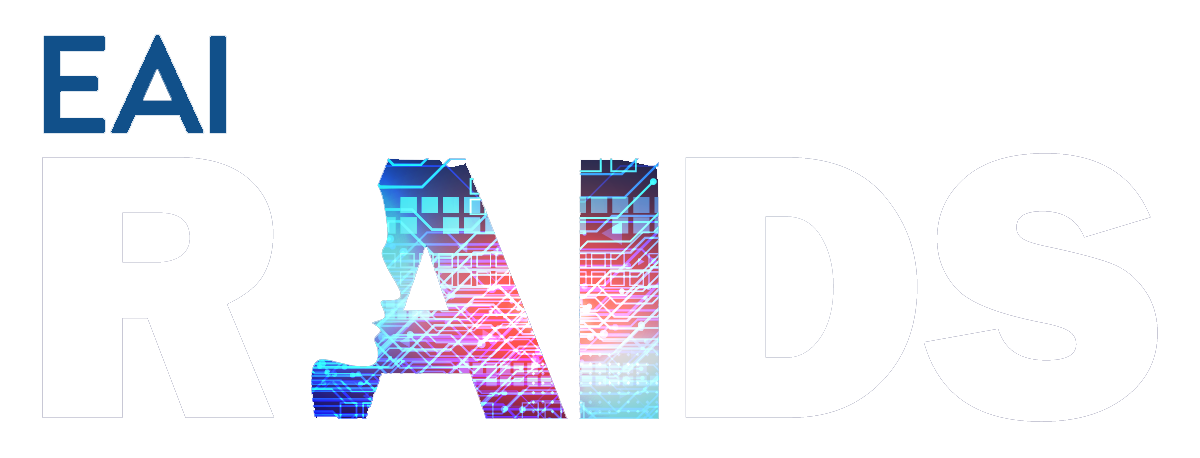Important Dates
placeholder
placeholder
placeholder
placeholder
placeholder
placeholder
Scope and Topics
We are currently amidst a remarkable era marked by the swift advancement and impactful utilization of Artificial Intelligence (AI) and Computational Technologies, ushering in what is commonly referred to as the fifth industrial revolution, or Industry 5.0. This transformative phase is characterized by a synergistic relationship between machines and humans, aimed at enhancing production by delivering tailored products that align precisely with customers’ needs and desires. In the landscape of Industry 5.0, the cornerstone principles revolve around Responsible Artificial Intelligence and Data Science. These principles ensure that AI and Data Science practices are imbued with transparency, effectively documenting data, models, and decision processes, while also addressing biases and safeguarding data privacy. The evolution and adoption of Responsible AI and Data Science not only unlock unprecedented economic opportunities and spur growth but also fortify safety and security measures, underpinning the foundation of this new technology. The aim of the conference is to stimulate interaction and convergent among researchers active in the areas of Responsible AI and Data Science. All topics are in the context of Trustworthy and Responsible AI and Data Science.
Scientific areas of interest include, but not limited to, the following fields:
Explainable, Trustworthy, and Transparent Artificial Intelligence:
Self-Supervised Learning, Adversarial Machine Learning, Anomaly Detection, Federated Learning, Federated Reinforcement Learning, Multimodal Deep Learning, Quantum Machine Learning, Physics-informed Machine Learning, Inverse Reinforcement Learning
Ethical and Human-centered Artificial Intelligence: Human-Centered Edge AI, Embedded AI, Wearable AI Devices, Human-Centered Design to Address Biases in AI, Augmented Intelligence, Human-Robot relations and collaborations, Human Impact, Augment Human Capabilities, and Intelligence
Safety and Reliability of Artificial Intelligence: Adversarial Attack Detection, Detecting Poisoning Attacks, Cybersecurity for AI Systems, Blockchain Empowered Federated Learning, Consensus Protocol, Evolutionary Computing, Swarm Algorithms
Trustworthy AI for Robotics and Autonomous Systems: Human-centered AI for Trustworthy Robots and Autonomous Systems, Ethical robotics, autonomous systems and AI, Responsible AI for Long-term Trustworthy Autonomous Systems
Intelligent Decision Support Systems: Embedding domain knowledge for Machine Learning, Clinical Decision Support Systems, Supply Chain Optimization, Production Optimization, Demand Forecasting, Cybersecurity for industrial control systems, Fault Detection and Diagnostics, Predictive Maintenance, Natural Language Processing for Fashion Trends Detection
Digital Twins: Digital Twins in Healthcare, Digital Twin Application for Production Optimization, Digital Twin Drives Smart Manufacturing
Applications of AI, Edge Computing, and Data Science in Industry 5.0: Digital Transition and AI, Twin Green and Digital Transition, AI for Health and Wellbeing, Smart Healthcare, Smart Manufacturing, Workplace Safety Wearables, Reliability Engineering, AI-aided Knowledge Discovery, Sustainable Fashion, Hardware Bit-Flipping Attack
Publication
All registered papers will be submitted for publishing by Springer EAISICC series and made available through the SpringerLink Digital Library (indexed by Scopus, ACM Digital Library, dblp, Google Scholar).
Proceedings will be submitted for inclusion in leading indexing services, such as Web of Science, Compendex, Scopus, DBLP, EU Digital Library, Google Scholar, IO-Port, MathSciNet, Inspec, and Zentralblatt MATH.
Authors of selected papers will be invited to submit an extended version to:
or Springer Wireless Networks (WINET) Journal (IF: XX)
Additional publication opportunities:
- EAI Transactions series (Open Access)
- EAI/Springer Innovations in Communications and Computing Book Series
(titles in this series are indexed in Ei Compendex, Web of Science & Scopus)
Paper Submission
– Regular research papers, up to 14 pages in length (excluding references).
– Work-in-progress papers on early results, up to 7 pages in length (excluding references).
– Tools experience papers describing tools for performance evaluation of complex systems, up to 7 pages in length (excluding references).
– Vision papers on new, disruptive ideas (supported, if possible, by empirical evidence and measurements) that differ from prior published work, up to 7 pages in length (excluding references).
All submitted papers must be unpublished and not be submitted for publication elsewhere.
Author’s kit – Instructions and Templates (SPRINGER)
Papers must be formatted using the Springer LNICST Authors’ Kit.
Instructions and templates are available from Springer’s LNICST homepage:
Please make sure that your paper adheres to the format as specified in the instructions and templates.
When uploading the camera-ready copy of your paper, please be sure to upload both:
- a PDF copy of your paper formatted according to the above templates, and
- an archive file (e.g. zip, tar.gz) containing the both a PDF copy of your paper and LaTeX or Word source material prepared according to the above guidelines.

